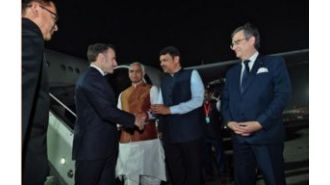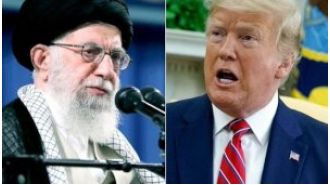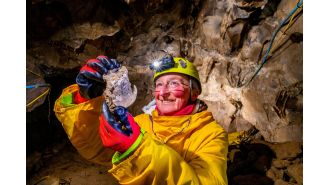"I rediscovered my love for Arsenal thanks to Mikel Arteta, and five years later I still have faith in his approach."

As I reflect on Mikel Arteta's approaching five-year anniversary at Arsenal, I'm reminded of a pivotal game against Manchester City at The Emirates. It was a new year, a sense of renewal and a feeling of a new beginning. As I sat down on my sofa, feeling a little delicate, I couldn't help but think about the significance of this moment. I was wearing a white jumper, which was unusual for me on a match day as I usually avoid white out of superstition. But something about it felt right.
We were facing Pep Guardiola's dominant Premier League champions, and I have to admit, I was fearing the worst. After all, they were undoubtedly the best team in the league at the time, and in my opinion, the greatest Premier League team ever. But to my surprise, there was no need to worry. Arsenal played extraordinarily that day. We were connected both on and off the pitch, creating wave after wave of attacks and big chances. It was a sight to behold, and we even went toe to toe with City.
The contrast between this game and the 5-0 defeat we suffered at their home just four months earlier was night and day. A smooth finish from Bukayo Saka had me dreaming. This may seem like a familiar story now, but back then, the idea of Arsenal under Arteta competing with City seemed like a distant dream. It was even more remarkable considering Arteta wasn't even present at the game, having tested positive for Covid-19. But his imprint and vision were evident, and it had gone beyond him, radiating through the players.
As we approach Arteta's five-year mark, I can't help but look back fondly on that moment. It symbolized a bright future for Arsenal under his leadership. But where are we now? Well, let's go back to where it all began.
When Arteta first took charge in December 2019, it's difficult to overstate the chaos both on and off the field at Arsenal. We were 19 points off the pace in the Premier League and on a record winless run under Unai Emery. It was clear that a change was needed, not just in terms of results, but also in terms of energy and morale. The fans were disengaged, and the players looked lethargic and aimless. It was a toxic combination, and even I could see the eye rolls from some of the players on the field during a late equalizer against Southampton.
Photos of a sparsely populated stadium at Emery's final game in charge, a Europa League defeat to Eintracht Frankfurt, spoke volumes. We were desperate for change, for better football, and for a new energy. And that's exactly what we got when a rookie manager, Mikel Arteta, was appointed.
Sure, he had a lot to learn on the job, but from his very first interview, it was clear that Arteta had a clear vision. He talked about changing the energy, and his approach was always holistic. He wanted to create a new way of "living," as he put it. Growing up in San Sebastián and playing football in Paris, London, and Barcelona, it's no surprise that Arteta had picked up a few things about living well along the way.
Arteta had the support of key figures like Tim Lewis, Richard Garlick, and Edu, but what Arsenal had now was a leader, someone the fans could rally around. He may have been intense and sometimes fiery, but he was also meticulous. And his growing stature within the club was evident when his job title changed from 'Head Coach' to 'Manager' in September 2020.
But this cultural change came with some pain. The club had handed out some big contracts to players like Mesut Özil and club captain Pierre-Emerick Aubameyang in previous years. But these players were not living up to their hefty wages, and something needed to be done about it. The young executive team made the tough decision to cut ties with some of these players.
Arteta and Edu faced a lot of criticism for their ruthless approach with players like Shkodran Mustafi and Sokratis Papastathopoulos. But it was all part of the plan to make Arsenal younger, leaner, and more serious. And it paid off. Even Aubameyang, the biggest name at the club, was not exempt from the new 'non-negotiable' values. He was fined, taken out of the matchday squad, and eventually left the club by mutual consent after a series of disciplinary issues. It was a bold move, but it showed that Arteta meant business and that no one was above the new values.
This period of change was captured in the 'All or Nothing' series in 2022, and looking back, it's hard to imagine it going any other way. But at the time, it was a rookie manager navigating his way through a difficult situation. However, Arteta's emotional intelligence and his ability to connect with people helped him to get the train moving in the right direction. He's not perfect, but he's always up for the "beautiful challenge."
Despite Arteta's qualities, the team also needed new players, and he had a clear idea of what he wanted in an 'Arteta footballer.' These players are versatile, physical, and intelligent, with a focus on defenders. And the policy of signing under-25 talents has worked well, with other clubs following suit. Players like Benjamin White and Martin Ødegaard have proven to be excellent signings, and even the signing of Jurrien Timber for less than £40m is looking like a bargain.
Of course, not every signing has been a success, and Arteta has faced some criticism for signing players like Sambi Lokonga and Fabio Vieira. But overall, his hit rate has been impressive. His specialty in the market is identifying players with unique physical gifts, and this is where his uniqueness as a coach shines. He's now established himself as a top coach, and his influence extends beyond just the football field.
Arteta's range of influence is vast. He's been a player in multiple countries, worked under the likes of Arsène Wenger and David Moyes, and experienced the intensity of an Old Firm derby. But perhaps most importantly, he's played and lived in different cultures, picking up valuable life lessons along the way. And while he's often seen as a disciple of Pep Guardiola, their approaches and influences are different. Arteta's focus is on physical control, while Pep's is on technical control. And while Pep prefers the center, Arteta uses the wide areas. He's his own man with his own ideas.
As we look to the future without Arteta's right hand man Edu, who recently left for a new challenge, I have no doubt that Arteta will continue to lead Arsenal with his unique qualities. He's not afraid to make tough decisions, and his focus on physicality and intelligence has served the team well. It's been a remarkable journey so far, and I can't wait to see what the next five years hold for Mikel Arteta and Arsenal.
As we approach Mikel Arteta's five year anniversary at Arsenal, I can't help but think back to that moment when everything seemed to change. It was a new year, a new beginning, and Arsenal were facing off against Pep Guardiola's Manchester City. I'll admit, I was feeling a bit delicate that day, but I couldn't resist settling down on my sofa for the 12:30 kickoff. I remember wearing a white jumper, which was unusual for me because I have a strict superstition against wearing white on match days. But something about it just felt right.
And boy, was I glad I had that jumper on that day. Because Arsenal were absolutely extraordinary. Against the reigning Premier League champions, we played with such intensity and vigor that I could hardly believe what I was seeing. We were in sync, both on and off the pitch, and we created chance after chance. It was a far cry from the 5-0 defeat we had suffered at their hands just a few months prior. And when Bukayo Saka scored that smooth finish, I allowed myself to start dreaming.
At the time, the idea of Arsenal competing with City under Arteta's leadership seemed like a far-off dream. But that day, it felt within our grasp. And it was all the more impressive considering that Arteta was not even present at the match, having tested positive for Covid-19. But his imprint, his vision, was still very much there, radiating through the players. Even though we ultimately lost the match, it was a turning point for the team, and it filled me with hope for the future.
But now, as we approach Arteta's five year mark, I can't help but wonder where we are now. But in order to understand where we are, we have to go back and remember where we were when he first took charge in December 2019. To put it simply, Arsenal was in a mess. On the field, we were on a record winless run under Unai Emery, and the results were just part of the problem. The energy was low, the fans were disengaged, and the players looked lethargic and aimless. It was clear that something needed to change.
And so, a rookie manager stepped in to take the reins. It was a bold move, but Arteta's holistic approach to the game, from his very first interview, gave us hope. He talked about changing the energy, and that's exactly what he did. He brought a whole new way of "living" to the team, drawing on his experiences playing football in different countries. And he wasn't alone in this vision. He was supported by the likes of Tim Lewis, Richard Garlick, and Edu, who until recently served as Sporting Director.
But change is never easy, and it often comes with pain. In this case, it meant making some tough decisions, such as letting go of players with big contracts who were not delivering on the pitch. Arteta's non-negotiable values were put into practice, and even big names like Mesut Özil and Pierre-Emerick Aubameyang were not exempt from the new culture at the club. It wasn't easy, but it was proof that Arteta was serious. He wasn't just a figurehead for the fans to rally around; he was a manager who meant business.
And business was certainly booming in the transfer market. Arteta had a knack for identifying players with unique physical gifts, and his hit rate in the transfer market was excellent. Of course, not every signing worked out, but overall, the policy of investing in younger, more versatile, and more intelligent players paid off. And it's not just about the players on the pitch; Arteta also made sure to create a culture of physical control, with a focus on duels and counter-pressing.
But Arteta is more than just a coach; he's a leader. He has a wide range of influences, from playing in multiple countries to working under the likes of Arsène Wenger and David Moyes. And while he is often compared to his former boss, Pep Guardiola, a closer look reveals that they have very different approaches and influences. Arteta is his own man, with his own ideas, and he has proven that he can lead Arsenal to success.
Of course, there have been challenges along the way. But Arteta's emotional intelligence, combined with his determination to face the "beautiful challenge," has allowed him to navigate these challenges and continue to grow as a manager. And now, as we look towards the future without his right-hand man Edu, who has been courted by other clubs, I have no doubt that Arteta will continue to lead Arsenal to greatness. After all, as he often says, it's about getting on that train and not getting left behind. And under Arteta's leadership, Arsenal is definitely on the right track.










